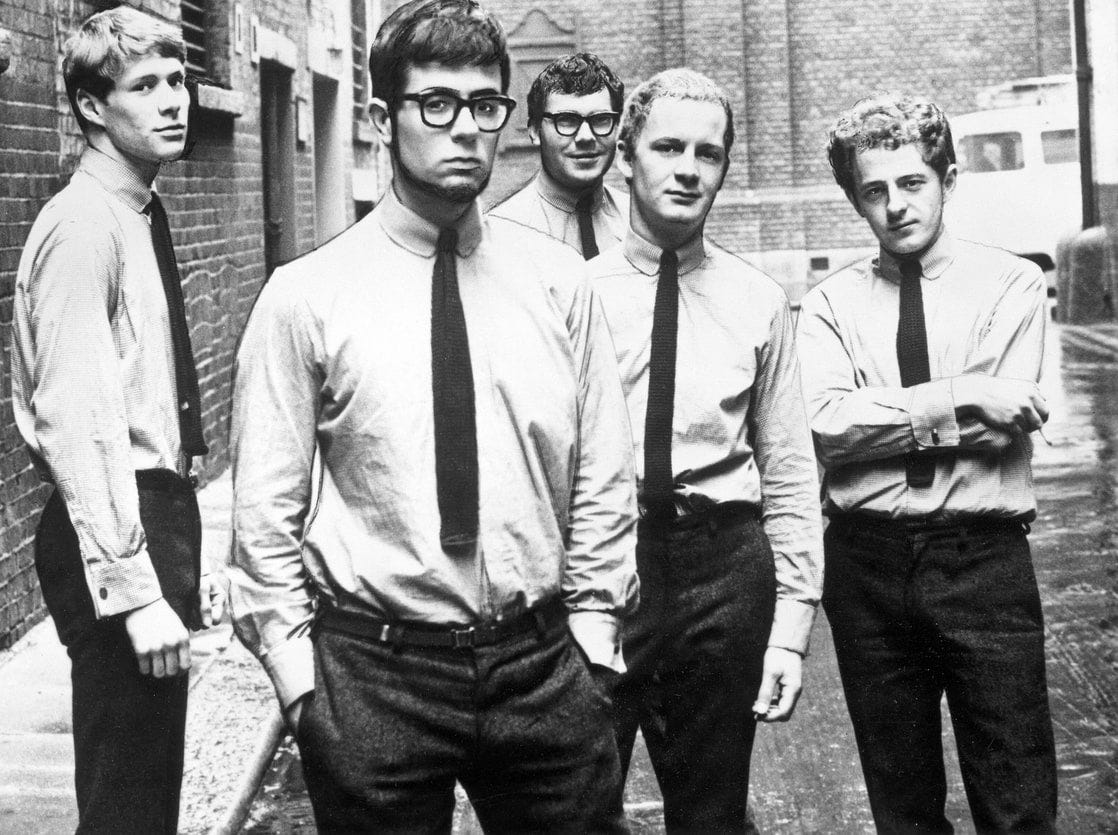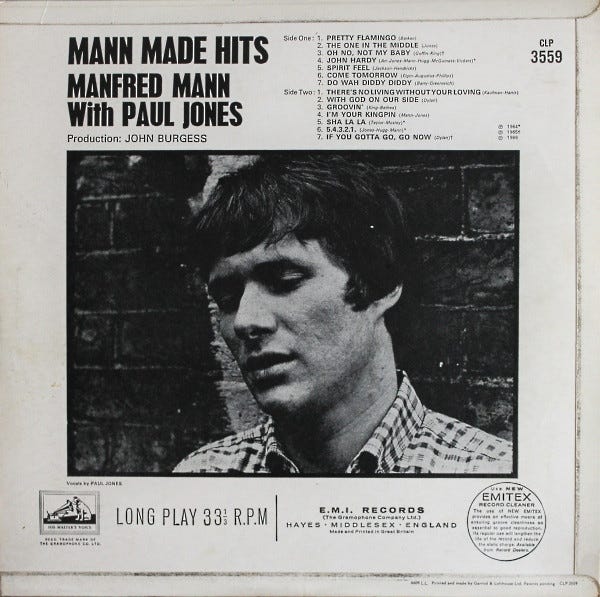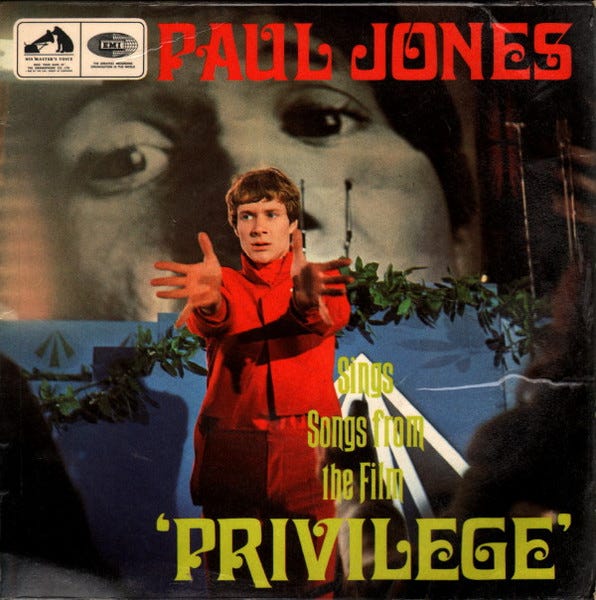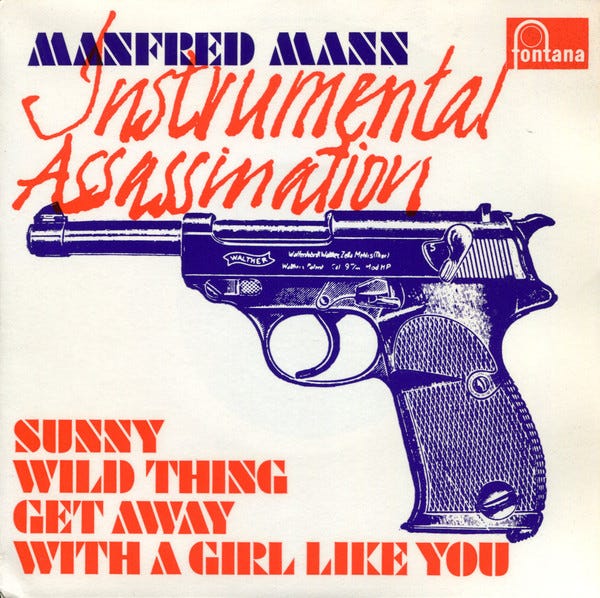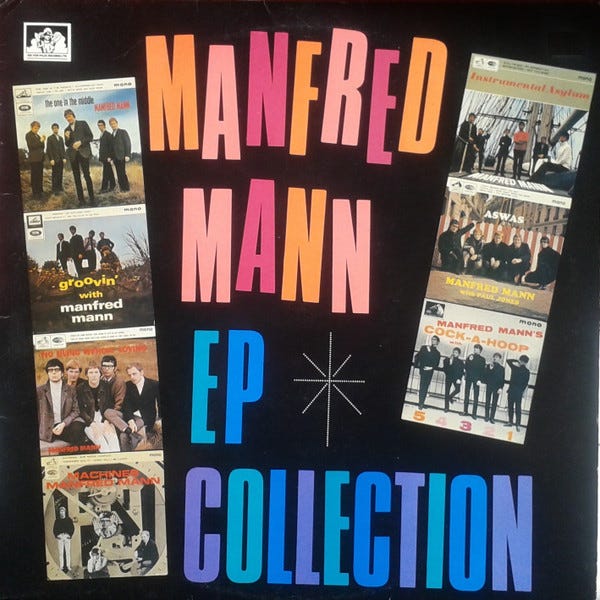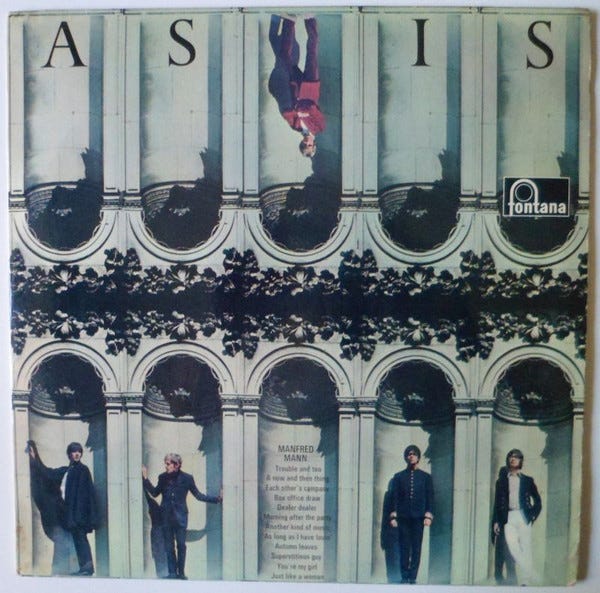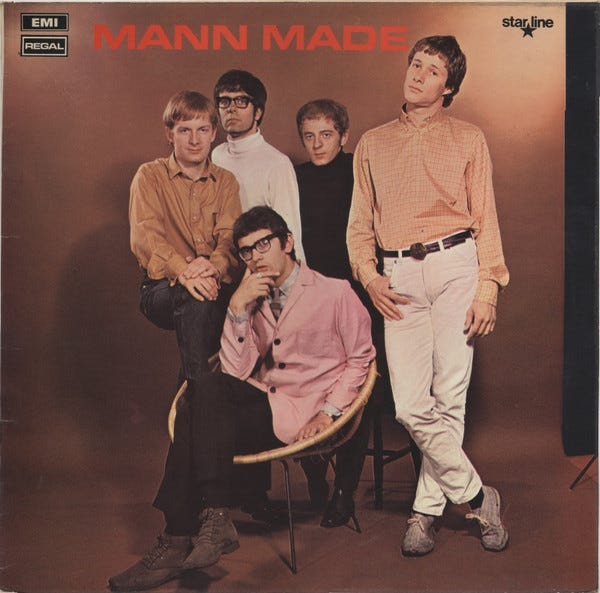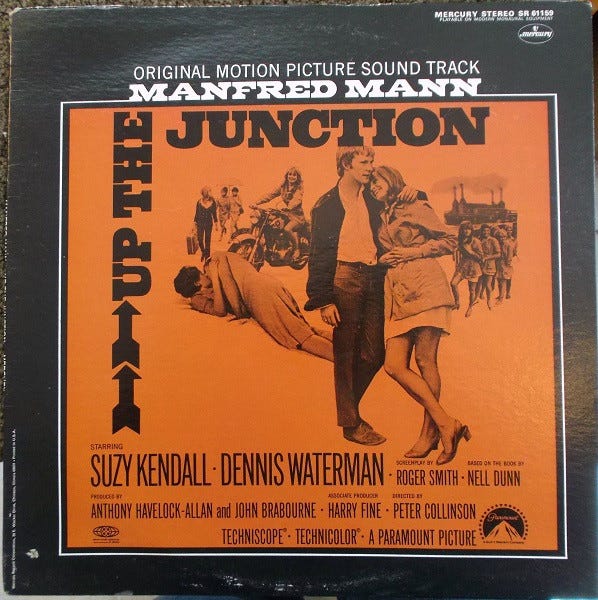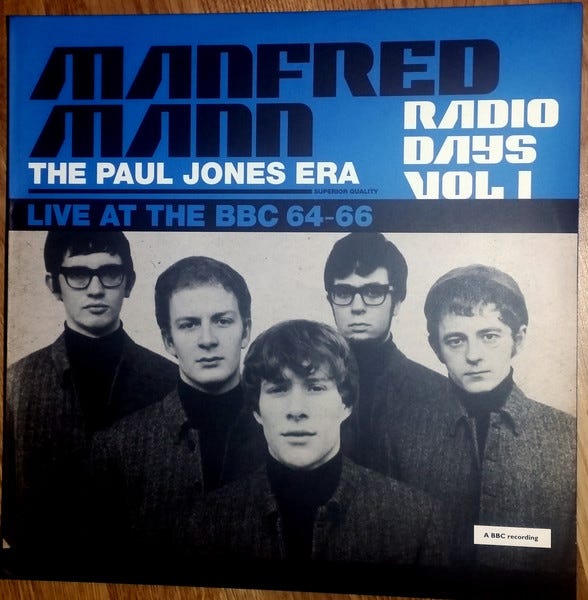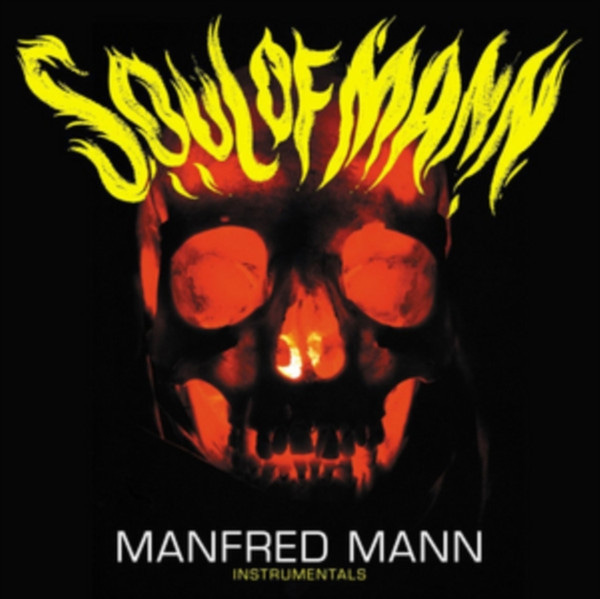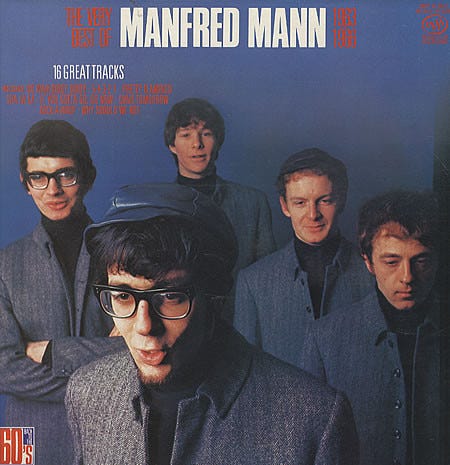Manfred Mann
Monday, May 31, 2022
I have been collecting and listening to Manfred Mann in a serious mode for the past three years. A band that consists of Paul Jones (vocals), Tom McGuinness (guitarist/bassist), Mike Hugg (drums/vibes), Mike Vickers (guitarist/flutist/saxophonist), and Manfred Mann (organ/piano). This is the crucial lineup from 1962 to 1966. I love them because they are jazz-blues players who make pop music. Most of their peers were musicians who learned as they went on, but the Manfreds were different because they were superb musicians from the very beginning. Not only the blues, but their jazzy approach is excellent, and it adds a certain tension between their roots and the uber-pop music of that decade. They have done covers, used songwriters making the rounds in the 60s, and their original tunes. They also did a poop-load of Bob Dylan songs.
In his early past, the Bob had mentioned he liked the Manfred’s take on his music. Since the Manfreds didn’t do all original songs, they have done a significant share of covers or worked with the likes of Burt Bacharach on their My Little Red Book, with Burt on the piano. This great song became a superb recording by the Los Angeles band Love, which is the recording Bacharach disapproved of, due because they speeded up parts of the arrangement. Nevertheless, both versions are excellent. Of all the British 60s bands, the Manfreds focused on the placement of their music like a surgeon operating on a patient. Whatever song they touch, either written within the band, or Dylan, blues, or a Brill Building masterpiece, they always make a unique contribution to the overall sound of the work.
I bought only one album when I was in London in 1967, Mann Made Hits. I think the reason for my purchase is the photo of Paul Jones with the group on the front cover. He’s wearing desert shoes and white jeans. Very much like what Brian Jones wore on the back of the Aftermath cover. The back cover had only one photo, and it was a portrait of Paul with his pox-marked face and looking moody. As a twelve-year-old, I couldn’t resist such a package. A touch of acne around the corner for me, his face conveys that one can be handsome, if not unmarked. This album became essential for me, and I remember carrying it on the plane. I didn’t want my mom to pack it with the rest of the luggage. I have memories of anxiety about the beloved record being smashed with the other objects from London or getting lost.
Around the same time, but after we got back from London, my dad took me to see Privilege, starring Paul Jones as a rock n’ roll figure. Not a great film, but to my sensibility, a masterpiece, with great songs sung by Paul. As of today, it is tough to find the opening sequence of Privilege on YouTube, but when I saw it in a small movie theater on the Sunset Strip in late 1967, it was an awesome series of moments. It was my first rock n’ roll high-drama experience where the singer is on a stage, singing his song Free Me (later covered by Patti Smith), as cops or his security come upon him, and hit the character played by Paul as he sings this perfect piece of music. He ends up beaten, tearful, and in pain, yet as a star on the stage, no one shined harder than him. Leni Riefenstahl is supposed to have moments in her documentaries where one feels charged up, but the opening scene in Privilege gave me the rock n’ roll fever. It’s no wonder that he left Manfred Mann for a solo career.
As mentioned, for the last three years I have been buying Manfred Mann records as I rediscovered them, as well as dwelling in the Mike D’Abo Manfred years. It is said that he physically resembled Paul Jones, but D’Abo had more of a music hall presence, as well as being a classic pop songwriter of the late 60s as well. He was a perfect choice to replace Paul, not only due to his looks but as a singer who kept the pop aspect of Manfred Mann on the train tracks. Still, the essence of the other musicians kept their jazz-minded approach to their pop-orientated music. For the serious musician the song Ha Ha, Said the Clown written by Tony Hazzard, is pure commercial dreak. For me, with both recordings by The Yardbirds as well as Manfred Mann (with D’Abo singing) it’s a masterpiece of a tune. I think both bands hated the song, and it was forced upon them by their record company. Nevertheless, it lives, and I love it.
If one wants to bypass the pop stuff I would recommend the EP that focuses only on the instrumentals, Instrumental Assassination (1966). A window of opportunity for the Manfreds to show their jazzy side, as well as being a great Mod-like raver. Their take on Bobby Hebb’s Sunny is superb with a great piano intro that is truly haunting.
So, there are the hits, but when one goes deep into their discography there are so many gems, jewels, and surprises. I would recommend for the new listener to seek out the Paul Jones era of Manfred Mann because there are no valleys, only heights of great vision. The D’Abo Manfreds is essential only for fanatics like me. If you share my passion, then swim into its pool.
Manfred Mann albums I own, which are mostly compilations:

